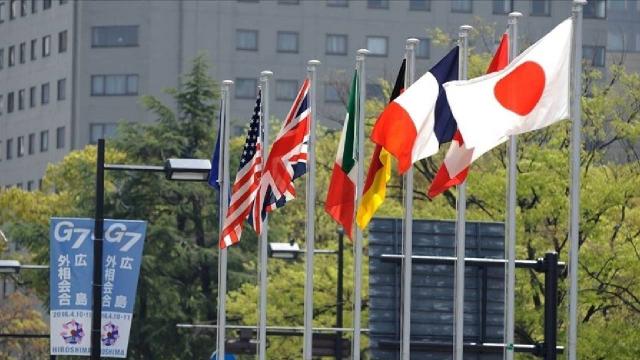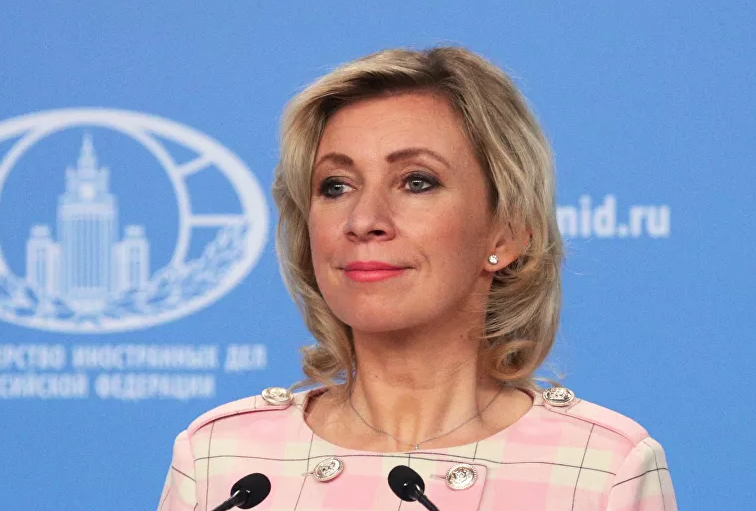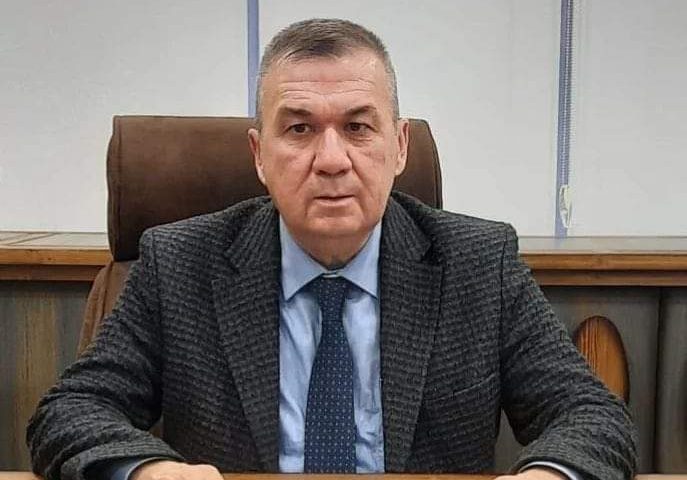“We call on Russia to stop its aggression and immediately withdraw its troops from the internationally recognized territory of Ukraine,” the leaders of the G7 countries – the United States, Germany, Britain, Canada, France, Italy and Japan – said in a joint statement.
“We salute the heroism of the Ukrainian people in their courageous resistance,” the G7 leaders said in a joint statement, adding that they would intensify diplomatic, financial and military support to Ukraine in its fight against Russia.
“Third countries that help circumvent sanctions against Russia will face serious costs,” the statement said, emphasizing that it was Russia that started and will end the war and accusing Moscow of destroying hospitals, schools and infrastructure in Ukraine and leaving historic cities in ruins.
[su_posts posts_per_page=”1″ tax_term=”27763″ offset=”1″ order=”desc” orderby=”id” post_status=”any” ignore_sticky_posts=”yes”]
“We call on Russia to stop its aggression and immediately, completely and unconditionally withdraw its troops from internationally recognized Ukrainian territory,” the statement said, adding that mass graves, evidence of sexual violence and torture had been found in areas liberated from Russian forces.
Emphasizing that any use of chemical, biological, radiological or nuclear weapons by Russia would have serious consequences, the statement expressed deep regret over Russia’s decision to suspend the implementation of the new START treaty.
The statement also expressed concern over Russia’s continued control over the Zaporizhia Nuclear Power Plant and noted that a solution would be achieved with the complete withdrawal of Russian troops from the plant.
Support for Ukraine
The statement reiterated the commitment to coordinated initiatives to meet Ukraine’s urgent military and defense equipment needs, focusing on the necessary ammunition and tanks, as well as air defense systems and capabilities.
The statement underlined that support for the maintenance of Ukraine’s economic and financial stability will continue, and in this context, it was reported that the finance ministers and central bank governors of the G7 countries increased the budget and economic support commitment for 2023 to 39 billion dollars in line with the needs of the Ukrainian government.
The statement asked finance ministers to maintain communication with the International Monetary Fund (IMF) and Ukraine to present a program by the end of March and to continue working with the IMF to provide Ukraine with the necessary budget in 2023 and beyond.
The statement also announced that a conference on Ukraine’s reconstruction will be held in June in the British capital London.
The Kiev government’s efforts to develop the necessary institutional structures in line with Ukraine’s “European path” will be supported, the statement said, emphasizing the importance of judicial reform, strengthening the rule of law and fighting corruption.
Emphasis on determination to increase sanctions against Russia
The G7 leaders announced that they are committed to imposing new economic sanctions on Russia, stepping up unprecedented and coordinated sanctions.
Accordingly, an “Implementation Coordination Mechanism” will be established to oversee the implementation of sanctions, and a number of measures, including transport and service bans, will be introduced against third countries providing material support for Russia’s war in Ukraine.
Further measures will be taken to deny Russia access to technology and inputs that it can use to build its war machine.
There will also be a ban on exports and a continuation of the price cap on Russian oil to reduce energy revenues and future mining revenues that Russia could use to finance its “illegal aggression”.
Measures will be taken to reduce Russian revenues from diamond exports, as well as additional measures against Russian financial institutions.
Efforts will also be made to ensure that Russia covers Ukraine’s long-term reconstruction costs.
“We collectively reaffirm the need for an international mechanism to record the damage caused by Russia,” the statement said, adding that Russia “takes full responsibility for the damage caused by the war, including to Ukraine’s critical infrastructure.”
The statement expressed determination to hold Russian President Vladimir Putin and “those responsible” to account in accordance with international law, and supported investigations by the Prosecutor of the International Criminal Court, the Prosecutor General of Ukraine and other national prosecutors who can establish jurisdiction under national law.
The importance of the Black Sea Grain Initiative emphasized
Expressing regret that many countries have been affected by the repercussions of Russia’s war against Ukraine, the statement reiterated the common will to continue to provide rapid assistance to countries in need and populations affected by the grain crisis.
The statement underlined the importance of the UN- and Turkey-brokered Black Sea Grain Corridor, the EU-Ukraine Solidarity Road and Ukrainian President Volodymyr Zelensky’s Grain from Ukraine Initiative, and underlined the need for the automatic extension of the Grain Corridor on 18 March.
Pledge to continue support in dealing with the consequences of the earthquakes in Turkey
On the other hand, the statement expressed deep sorrow for those affected by the earthquakes centered in Kahramanmaras and solidarity with the people of Turkey and Syria, and pledged continued support in dealing with the consequences of this disaster.
Stating that it is vital to reach all those in need of humanitarian assistance as efficiently as possible, the statement welcomed the expansion of cross-border assistance for an initial period of 3 months and emphasized the importance of continuing to meet humanitarian needs in northwest Syria.
The joint statement of the G7 leaders also welcomed the European Union’s (EU) initiative to host a donors’ conference in March to support earthquake victims in Turkey and Syria.





